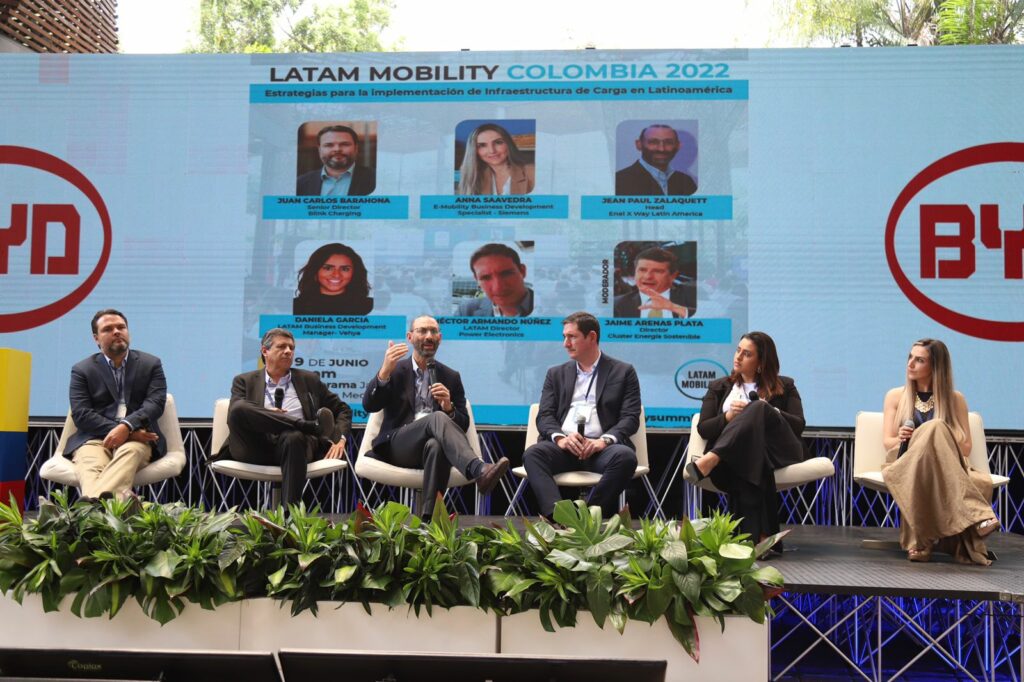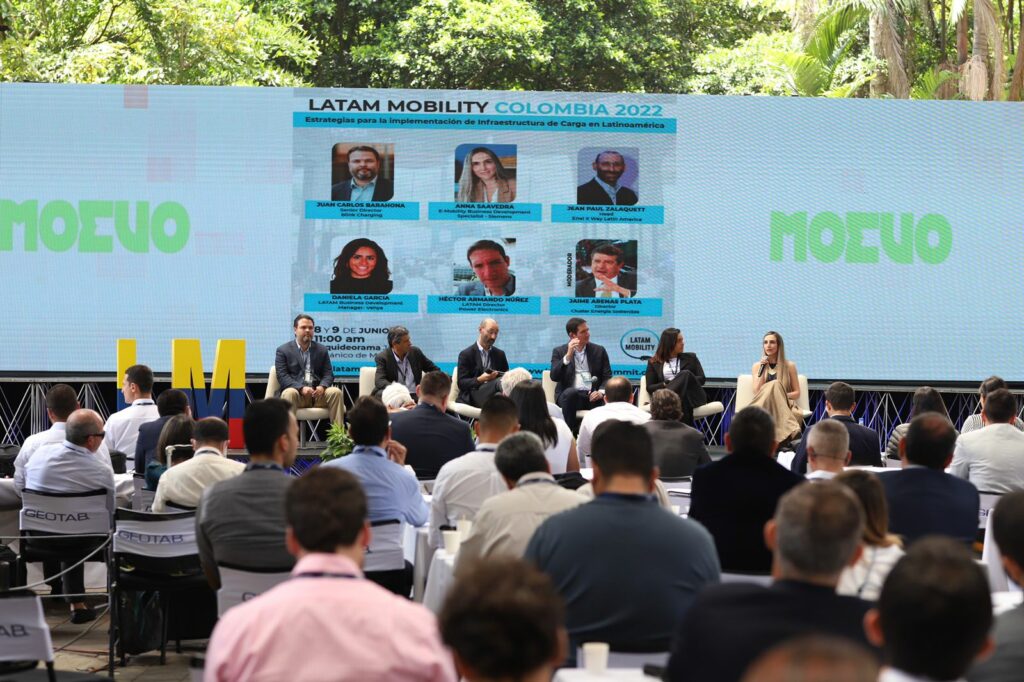Electric mobility is not only about the purchase of vehicles with this technology, but is part of a conglomerate of aspects to adapt transportation and vehicle fleet in general to these environmentally friendly innovations.
The charging infrastructure is a fundamental part in the promotion of electromobility, which is why representatives of prestigious companies that develop systems in this area met at the Latam Mobility Colombia meeting to discuss strategies in this regard.
Juan Carlos Barahona, Senior Director of Blink Charging, a company with operations in 28 countries and 13 years of experience in electromobility, pointed out that one of the main challenges is to ensure that the people in charge of enacting laws have adequate knowledge on these issues, because in many cases, the regulations do not contribute to the massification of these new technologies.
“We must be promoters and educators in the circles in which we move, this will bring benefits on a massive scale, seeking that the rulers make the necessary adjustments for the promotion of electromobility,” he added.
He assured that Blink has a very strong commitment to sustainable mobility, with the development of business models for different types of companies to participate through alliances. Barahona explained that they are working hand in hand with hotels, shopping centers and residential complexes to install charging infrastructure.

Latam Mobility Colombia was also attended by Anna Saavedra, E-Mobility Business Development Specialist at Siemens, who explained that one of the goals to strengthen electromobility is to prepare the networks to support the booming demand currently in the market.
“Charging 2,000 cars is the equivalent of supplying energy to a city or town. The objective is to develop technology with a lower impact on the grid in order not to have such a large consumption”, he explained.
She affirmed that there is a great commitment from the private sector to bring new technologies to Latin America, to see if they are applicable and to develop them, in order to achieve the common goal of promoting sustainable mobility.
Intelligent Charging
For Jean Paul Zalaquett, Head of Enel X Way Latin America, the greatest challenges are growth and massification, highlighting the example of Colombia and Chile as reference countries in the region and the world.
He emphasized that electromobility technologies are so advanced that the Enel Group decided to create Enel X Way to be exclusively in charge of this sector. “This is a business of scale, we have the possibility of making a change in the reduction of emissions, which is a challenge for the planet, and this technology allows us to do it in the right direction.”
Zalaquett assured that the technology is ready for the massification of electromobility, with the installation of smart chargers as the solution to the so far insufficient charging infrastructure. “We must work on how we distribute the available energy and reduce investment costs, starting by adopting existing innovations.”
“We have to adapt to market forces. We must have an open mind and the capacity to innovate,” he said.
For his part, Héctor Armando Núñez, LATAM Director of Power Electronics, considers it essential for governments and companies to adapt to the speed of technological changes, since investment in research and development, as well as changes in their product catalogs are constantly modified due to advances.
“We are making investments much faster than the regulations are going, that limits us a little, it makes the work more complex, but we must also recognize that there are governments with good practices to continue promoting mobility,” he said.
Núñez assured that electromobility “is here to stay and has no disadvantages. Although price is still a barrier, this will change. He maintained that there is currently greater demand than supply, so if battery megafactories continue to grow it is going to be favorable for costs. “You have to be prepared for the changes,” he concluded.
In the same vein, Daniela García, LATAM Business Development Manager of Vehya, stressed that representatives of companies and authorities “are deciding the future of the market” through the measures they take for the development of electric mobility.
She pointed out that among the challenges and opportunities of the market are standardization, guaranteeing the level of service, and defining what is wanted within the market.
We have the opportunity to apply technology to develop and provide access, more efficiently with lower costs and reach more people,” he said.
García pointed out that Vehya considers the workforce and its preparation as the cornerstone of the value chain to achieve a solid charging infrastructure.
The panelists of this interesting topic proposed at Latam Mobility Colombia concluded that the “evangelization” of entrepreneurs, authorities and civil society in general is a crucial factor in the commitment to mass electromobility in Latin America.




